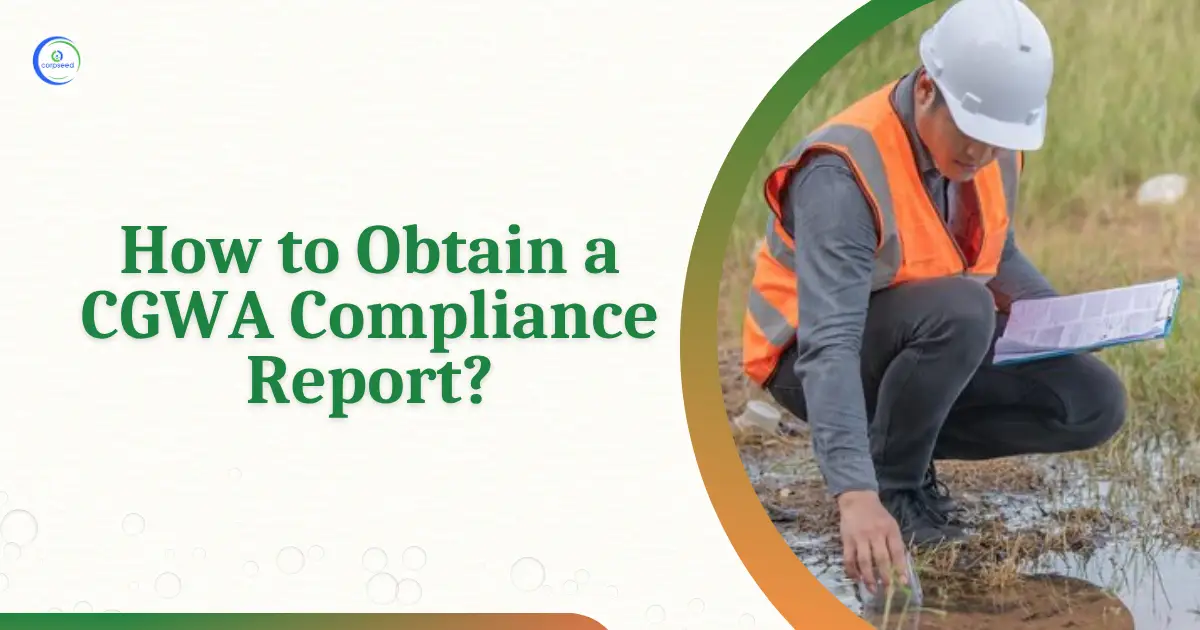Environmental compliance is crucial for a modern business as it helps in adhering to the laws protecting the environment. With a growing concern towards sustainability worldwide, knowing compliance minimizes ecological damage and protects public health as well. It enhances a company's reputation, increases customer loyalty, and encourages employee engagement through a safe working environment. Effective environmental compliance is the doorway to sustainable business practices and long-term success hence, it needs to be followed by organizations as well as individuals.
What is Environmental Compliance?
Environmental compliance is the act of respecting environmental laws, regulations, and standards to uphold the protection of the environment and introduce sustainability into practices. Activities involved include monitoring and reducing emissions, controlling waste, conserving resources, and obtaining necessary permits among others. Organizations have to install environmental management systems, conduct regular audits, and report their environmental performance. Complying helps to reduce environmental risks, avoids legal penalties, and enhances corporate reputation. The bottom line is that it also contributes towards the protection of natural resources, public health, and the overall well-being of communities. Prioritizing environmental compliance is essential for sustainable development and responsible business operations.
Table of Contents
--------------Blog Contact Form-------------
Key Components of Environmental Compliance
- Understanding Environmental Regulations: Environmental compliance involves understanding the regulations applied to a given industry or activity. Such regulations can be local, national, or international and are normally industry-specific. Key areas revolve around air and water quality, waste management, and chemical control.
- Implementation of Environmental Management Systems (EMS): An EMS structures the environmental responsibilities effectively and combines them with the organization's mainstream operations. The widely accepted standard for EMS implementation is the ISO 14001 standard.
- Permits and Reporting: An organization must obtain all necessary permits concerning emissions, discharges, and other types of environmental impact. Also, it must regularly report its performance on environmental issues to the regulatory agencies, proving that it complies.
- Environmental Audits and Inspections: Regular audits and inspections are crucial for ensuring compliance. These can be conducted internally or by external bodies to assess whether the organization meets regulatory requirements and identify areas for improvement.
Also Read: What is Sustainability?
Importance of Environmental Compliance
- Legal Obedience: Ensure that organizations adhere to environmental laws and regulatory compliance so as not to incur penalties, legal suits, and reputational damage. Compliance is an assurance of lawfulness in the operations of the organization and gives confidence to regulators and the community.
- Environmental Conservation: Prevents pollution and litter, conserves natural resources, and protects ecosystems. There is a commitment towards saving biodiversity and future generations toward a healthy environment.
- Risk Management: Diminishes the chances of environmental-related incidents such as chemical spills or leakages that may affect human health and the environment. Proactive compliance can avoid the expensive cost of clean-ups and avoid long-term environmental damage.
- Corporate Reputation: An organization can enhance its reputation by demonstrating dedication to ethical and sustainable practices. Companies that respect environmental compliance often enjoy better regard from their customers, investors, and business partners.
- Economic Benefits: Offers cost savings through resource efficiency, waste reduction, and energy conservation. Environmental compliance can also provide business opportunities such as access to green markets and incentives for sustainable practices.
- Sustainable Development: It supports long-term sustainability goals through responsible use of resources and reduction of environmental footprint. This approach will ensure that business operations contribute positively to societal goals for sustainable development and environmental stewardship.How Environmental Compliance Helps Businesses to Grow
Also Read: Sustainability Strategy and Transformation Consulting
How Environmental Compliance Helps Businesses to Grow?
- Enhanced reputation: This goes ahead to attract customers, investors, and partners regarding the firm's environmental consciousness, hence fostering loyalty.
- Cost saving: This is through efficient use of resources, minimization of wastes, and saving of energy, increases profitability
- Market access and opportunities: Many new markets and business opportunities are opened up, appealing to the eco-conscious consumer, with stringent market entry requirements.
- Employee Morale and Recruitment: Enhances morale and attracts the best employees who value a commitment to sustainability.
- Regulatory Incentives: Provides appropriations from the government with incentives for compliance with environmental regulations.
- Stakeholder Trust and Engagement: Building stakeholder trust through transparent and proactive compliance is a means to improve relationships and thus business.
Challenges in Environmental Compliance
- Complexity of regulations: The different and often complex environmental laws in various jurisdictions can make regulation complicated, particularly for organizations operating in different locations.
- Cost of Compliance: There is a significant cost attached to compliance measures technology, waste management, and reporting processes create a considerable strain on the funding of small and medium enterprises.
- Changes in the Regulatory Environment: The environmental laws are constantly under change, and consequently, organizations must update their compliance strategies constantly.
- Resource Constraints: Most small-sized firms, apart from some large organizations, lack the requisite skills and capabilities to attain maximum compliance, and therefore, cannot achieve full compliance.
- Technological Adaptation: Tracking and compliance with changes in technology is challenging, and constant investment and training need to be done so that proper use of new tools is in place.
Also Read: Maximizing Sustainability and ESG Impact
The Future of Environmental Compliance
- Sustainability Integration: Environmental compliance will become an integral part of sustainability initiatives at large, addressing climate change, resource conservation, and social responsibility.
- Digital transformation: AI, machine learning, and IoT shall be leveraged in monitoring, reporting, and compliance management.
- Circular economy: Regulations will promote reuse, recycling, and regeneration of resources, with waste reduction at its core.
- Increased expectations from stakeholders: Increased stakeholder expectations in terms of transparency, accountability, and proactive compliance efforts by investors, customers, and regulators.
- International Collaboration: Ensure cross-border compliance and sustainability by addressing global environmental issues through global cooperation and managing global regulations.
Conclusion
Environmental compliance is the bedrock for the operation of responsible businesses. Very vital in adhering to laws and protecting the environment, it not only minimizes ecological damage and safeguards public health but also fosters reputation, encourages customer loyalty, and keeps employees engaged. Businesses may engage their activities for long-term success if they successfully integrate their thoughts toward sustainability. The future of environmental compliance: embracing the new digital transformation, circular economy principles, and global collaboration. Essentially, environmental compliance will be prioritized to ensure sustainable development, risk management, and a positive corporate image, pushing growth and fostering trust with stakeholders.
This portion of the site is for informational purposes only. The content is not legal advice. The statements and opinions are the expression of author, not corpseed, and have not been evaluated by corpseed for accuracy, completeness, or changes in the law.
BOOK A FREE CONSULTATION
Get help from an experienced legal adviser. Schedule your consultation at a time that works for you and it's absolutely FREE.









